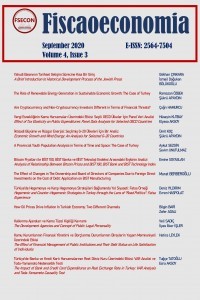
Fiscaoeconomia
Yazarlar: Fatmanur GÜDER
Konular:Sosyal Bilimler, Disiplinler Arası
DOI:10.25295/fsecon.2019.02.008
Anahtar Kelimeler:Income Distribution,High-Income Countries,Panel Data Analysis
Özet: The study reveals the causes of inequality of income distribution in high-income countries. In the research, the macroeconomic factors affecting income distribution such as economic growth rate, inflation, unemployment, globalization, technology and public revenues are considered as independent variables. The gini coefficient, which is one of the methods of measuring income inequality, is considered as dependent variable. Dummy variable is also included as an independent variable to the model to eliminate the effects of the global crisis that started in the United States in 2008 and spread all over the world. In the study, which is based on the 2008-2015 period, high-income countries are considered and the factors affecting income distribution are examined by panel data analysis. According to the findings of analysis, it is seen that inflation, economic growth, unemployment and public revenues increase income inequality in high income countries and economic globalization contributes to the improvement of income distribution in these countries. The shadow variable added to the model is also statistically significant. This shows that the crisis has a negative effect on income distribution in high-income countries.